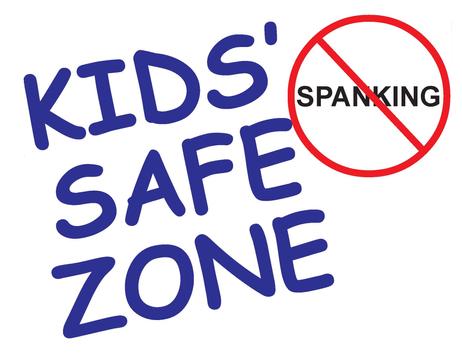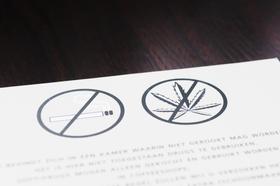I have been writing about corporal punishment in K-12 schools since 1999. Frankly, I am appalled that 19 states in 2019 still permit corporal punishment in their public and private schools. As of 2019, Alabama, Arkansas, Arizona, Colorado, Florida, Georgia, Idaho, Indiana, Kansas, Kentucky, Louisiana, Missouri, Mississippi, North Carolina, Oklahoma, South Carolina, Tennessee, Texas, and Wyoming have not banned corporal punishment. The United States does not have a federal law prohibiting corporal punishment in public or private schools, much less in the home. State and local laws govern education in almost every respect. Local and state taxes fund public education. Therefore, it has been the local and state authorities which make the rules regarding how students are disciplined.
What is corporal punishment?
UNICEF defines corporal punishment as “any punishment in which physical force is used and intended to cause some degree of pain or discomfort, however light. Most involve hitting (“smacking”, “slapping”, “spanking”) children, with the hand or with an implement "
How many children are involved with corporal punishment?
"A total of 163,333 children were subject to corporal punishment in these states’ public schools during the 2011–2012 school year.
What are the negative consequences of corporal punishment?"
Why do 19 states still permit corporal punishment? posits that corporal punishment still exists because administrators and teachers think it does some good. They base their decision to use corporal punishment not on any evidence drawn from research but rather from their own opinions and feelings.
Corporal punishment exists mainly in southern states and a couple of western ones. It staggers the imagination of most people to even think that the leading nation in human rights issues could permit such abuse. But it does and has for years. 56 nations have banned corporal punishment. Another 55 nations are making progress towards the goal of banning violence against children both in school and in the home.
Children of color tend to be hit more.
The Hechinger Report offers data which suggests that boys of color and children with disabilities are paddled more frequently than white children. Various sources indicate that paddling in southern schools is a legacy which has been handed over from one generation of teachers to another. The number of paddling incidents appears to be on a decline for three reasons: 1) communities are being more proactive in their opposition to the practice; a new generation of teachers generally avoids the practice.; parents are more likely to sue if their child is hit by a teacher or administrator. New approaches to discipline and a better understanding of the effects of corporal punishment are taking hold with small but positive results.
The National Education Association article Why Are 19 States Still Allowing Corporal Punishment in Schools?
https://www.ncbi.nlm.nih.gov/pmc/articles/PMC5766273/
The history of corporal punishment in private schools
While corporal punishment is legal in private schools in every state, it is rarely used in that setting nowadays. Unfortunately, only New Jersey and Iowa have banned corporal punishment in private and parochial schools.
Does corporal punishment do any good?
That's the rub. While corporal punishment gets a child's attention, it is also true that a child who has experienced aggression against him will be aggressive to others. According to the National Association of Secondary School Principals, "Research indicates that corporal punishment may adversely affect a student’s self-image and his or her school achievement (Society for Adolescent Medicine, 2003). Research has also shown a correlation between the use of corporal punishment and unintended negative consequences for children such as poor mental health, lower cognitive ability and academic achievement, and higher risk for physical abuse (Society for Research in Child Development, 2016). The practice of corporal punishment is inconsistent with legislative policies on child abuse and on racial, economic, and gender equity. Corporal punishment increases liability for school administrators and school boards."
Is there a link between fundamental religious beliefs and corporal punishment?
Rita Swan writes in Religious Attitudes on Corporal Punishment that very few religious denominations support the use of corporal punishment. She furthers notes that "Several studies have shown both the practice of and belief in corporal punishment to be much higher among fundamentalist Protestants. Researchers for www.religioustolerance.org found they are the only religious group that publishes doctrinal justifications for corporal punishment. Many fundamentalists believe that hitting children is sanctioned or mandated by the Bible. They cite these verses in the Old Testament’s Proverbs as authority for their belief: 3:11-12, 13:24, 19:18, 20:30, 22:15, and 23:13-14. The latter claims that if you beat a child with a rod, he will not die, but instead will have his soul saved. One tape-recorded sermon advises parents to “wound” the child with corporal punishment because Proverbs 20:30 says a wound cleanses away evil." It is also worth noting that Jesus does not mention anything about punishing children."
How can we abolish corporal punishment?
Humanism by Joe notes that "Our society no longer permits the beating of military personnel, apprentices, wives, and prisoners. Children should have the same protection." The status quo will not change until you and I do something about it. We must let our local school boards know that we do not approve of corporal punishment. If they refuse to ban it, then we need to elect school board members who will. The same approach applies to our state legislators. Ask them to change the law and ban corporal punishment in our public and private schools. Moving up another level, we need to insist that our Representatives and Senators pass legislation prohibiting violence against children at the federal level. It is high time that the United States joined other enlightened nations and led the way to prohibit violence against children at the national level.
The Global Initiative To End All Corporate Punishment Of Children offers a wealth of information and resources to help you better understand how to end violence against children. Please do your part.
Questions? Contact us on Facebook. @privateschoolreview




















